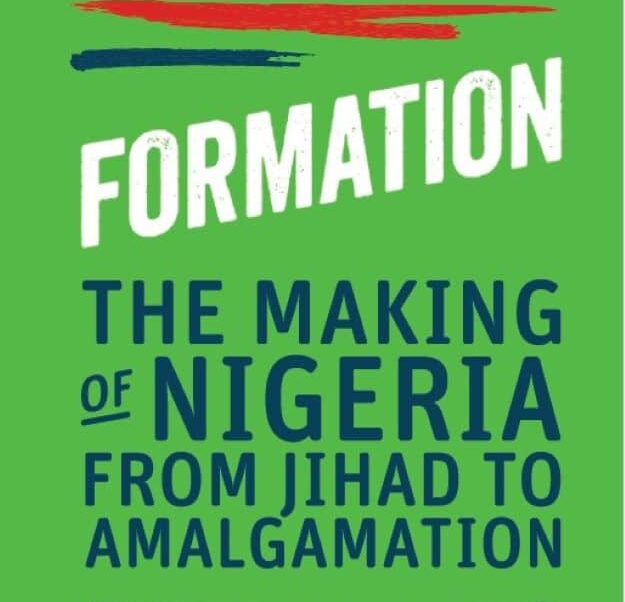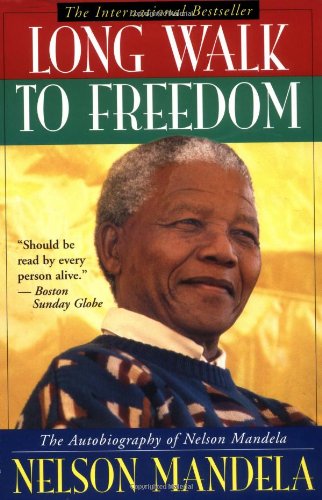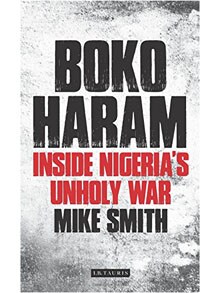This morning, I finished reading Formation: The Making of Nigeria from Jihad to Amalgamation by Fola Fagbule & Feyi Fawehinmi, written in 2021.
After finishing the book, I took a deep breath and thought it was astonishing how the authors, both working in the financial sector (Feyi is an accountant while Fola is a banker), painstakingly produced a book that would impress the best of historians. It is a book about the history of the area now known as Nigeria. It traces the origin of this vast country which envelopes the confluence between the great rivers of Niger and Benue and extends northwards to the great Bornu empire, westward to the war-torn Oyo empire, southward to the creeks of the Niger Delta and eastward to the hinterlands of the Aro. It tells the stories of how these vast and different peoples were brought together under a single colonial rule.
But first, the book had to start in 1804 from the incomparable Uthman Dan Fodio and his followers. Starting from a little-known settlement called Gobir, they conquered multiple lands in all directions, including teaming up with the renegade Oyo prince, Afonja (whom they later killed) to take over the valued Ilorin city. The one great city they didn’t conquer was the kingdom of Bornu – one so formidable that its imperial reaches once extended far northwards across the great Sahara to include inland territories of present-day Libya. The Fulanis were an impressive army. They set up the largest and most advanced, organized civil state in sub-Saharan Africa.
#What I Learnt – Juba the Second, the Rome-educated scholar and Berber king of Numidia in present-day Algeria, gave River Niger its name, derived from the Tuareg expression ‘N’ger-n-n’gero,’ meaning ‘River of Rivers.’
Would the Fulani Jihadists have conquered the areas south of the Niger? No one is sure. Conquests create enemies, and empires often fall from within. A good example, perhaps, is the internal rebellion of 1818, which became perhaps the bloodiest single day in Nigerian history. But then, they could well have conquered the entire Yorubaland, even if the reign did not last long, especially because of the constant fighting taking place in Yorubaland. Oyo would have taken back defeated Afonja if the Alaafin did not have problems popping up all across the Empire.
A renewed appreciation of modern life, where relative peace has been achieved, would come upon the reader as they read of the life of constant fights that their ancestors were thrown into. For instance, Bello, who succeeded Uthman, led 47 expeditions and raids in his time as Sultan, an average of more than two per annum. It was worse in Yorubaland. The system was such that you either raided or waited to be raided. There was no middle ground. It is not difficult to imagine that had the British not imposed calm through brutal force, the wars would have continued in perpetuity. War was the basis of Ibadan’s economic existence. To show the extent to which wars were taken as a given, when Emir Alihu at Ilorin was informed that Queen Victoria had reigned for over 50 years in England, he considered it ridiculous. To him, how can one person govern for so long a time without enemies arising to plot against her life?
You should read the account of the ambush that led to the death of Mungo Park. You should also read the chronicle of the Nembe uprising, which dealt the killer blow to the monopolistic Royal Niger Company and fast-tracked colonial rule. More importantly, read the account of the incredible fight between the famed Agoji of Dahomey and Abeokuta. The account was scintillating. This is why the movie ‘The Woman King’ amused me. King Ghezo was one of the most feared and entrenched rulers and slave traders West Africa has ever seen. His female warriors were a menace to their neighbors in the all-important exchange of human bodies for European weaponry and merchandise.
It’s difficult to imagine the scale of slavery in ancient African societies. The Aro dealt extensively in trade. Slaves were denied political representation, economic and financial transactions, marriage, property rights, and religious rites. Entire villages were earmarked for slaves for the purpose of labor-intensive palm oil cultivation. The Sokoto Caliphate was one of the largest slave societies in history, with up to 50 percent of the population being slaves by the end of the nineteenth century. When one Emir was entreated by the British to let go, he unyieldingly proclaimed, ‘Can you stop a cat from mousing? When I die, it will be with a slave in my mouth!’. The famous Madam Efunsetan Aniwura was said to have been happier for boatloads of humans to be drowned, rather than sold at a loss to her.
The slave trade grew internal as British force reduced overseas demand. Porterage and industrial-scale cash crop production in Niger-Benue, notably the Nupe Tungazi and Urhobo and western Igbo palm oil plantations, required slaves. Slave prices rose from £1 (about £130 now) for a male slave in 1850 to £7 (same amount after inflation) in 1895 as overseas demand fell. Female slaves cost extra. Local demand and indiscriminate slave-raiding generated a supply glut, which stabilized market prices despite decades of export demand reduction.
#NewWordAlert – Suzerainty
No wonder minorities embraced the missionaries, and then much later the British rule. The long-suffering communities from these rapacious slave harvesting harbored multiple decades-long resentments against their overlords. Siding with the European superpowers was their only chance at striking back and regaining freedom from their oppressors. So, they volunteered their support and participation on the side of the British forces, supplying them with food and soldiers. Being in charge of the maxim gun (which had just come out) and the devastation it wrought on their previous lords must have been an exhilarating experience. Hours after reading the book, I am still unable to get over this quote about the fall of Ilorin to the British:
“It was over in less than three days; the excised limb of the centuries-old great Oyo Empire was reduced to an appendage of a stock market listed company in faraway London.”
It is for this pragmatism of the minorities that I wonder what a blessing a leader like Sodeke of Abeokuta must have been. A visionary leader who brought together more than 150 distinct groupings of settlements. Devolving powers to other sub-groups closer to the people, he was one of the first to embrace the missionaries and thus made his people safe from marauding Yoruba warriors. Sodeke’s competent leadership led to the city’s peace and prosperity, access to a thriving seaport, internal markets in the Yoruba hinterland, and attracted migrants from the diaspora. Sierra Leonean ethnic Yorubas (freed slaves and their descendants called Saro) began to trade with the old country via Abeokuta. They governed Abeokuta so well that the city’s name resonated in British political circles as an ally that must be protected by any means necessary.
And that was how the later highly influential Samuel Ajayi Crowther came to settle in the city-state. Crowther was a colossus. It was he who influenced the Royal court in England into an aggressive implementation of the Aberdeen Act of 1845, which stipulated that arrested slave traders could be tried in British courts. This was what finally led to the dislocation of the slave markets at the coast of West Africa and the start of palm oil trading at Lagos for the first time.
#Odd – Considering what happened between the British and the Benin king, it’s surprising they allowed his son, Aiguobasinwin, to return as King. It’s not consistent with their nature at the time.
This era of people like Ajayi Crowther and Jaja of Opobo, before colonial rule started, could very well be regarded as the golden age of Nigeria, at least in the area below the Niger. With little interference from their advocates in London, these Black men took charge of their lands and brought about African-led human development. Unfortunately, it was not to last. The arrival of the most important capitalist in the history of Nigeria, George Taubman Goldie, on the river made sure of that (without whom we could easily be speaking German or French now). And then his excesses brought about the emergence of British colonial rule in newly formed Nigeria.
#Alert – There is the story of a certain Desalu that you will find head-spinning.
Also, the reader was introduced to perhaps the most important person in Nigeria’s history – the man Frederick John Dealtry Lugard, and his wife, the accomplished Flora Shaw. The man who joined one of the most diverse peoples in the world into one nation was a troubled child and a troubled soldier who was given the job of using force to bring about the amalgamation of Northern and Southern Nigeria. Reading the account of his stewardship to London, I could not help but think that had he wanted, he would have imposed Christianity in the North even if with great difficulty. But at this time, the son of a missionary had become agnostic and did not care much for the religion of his father. He named Port Harcourt after Lewis Vernon Harcourt, a known sexual predator who killed himself when his attempt to have sex with a 12-year-old boy was about to be published in the papers, as a reward.
It was Lord Lugard in 1914 who completed the work that Dan Fodio had started, bringing a diverse set of people under one umbrella. As you read, you will plainly see the reasons why it has been a daunting task to maintain unity in Nigeria, the sixth most populous nation in the world, since its creation.
I have two criticisms of this book. Firstly, it was so distracting to read teasing phrases like ‘who we will meet in more detail later’, ‘as we shall see later in our story’, ‘we will return in greater detail’, ‘as we will see’, etc. These teasers were littered all over the book and were unnecessary. An engaging book does not need these baits. Secondly, I know El Nathan John has a great voice, but his pronunciation of some of the names is cringy. He absolutely murdered many of the names; so many were completely off. Couldn’t he have spent quality time learning to pronounce these names? It was as if no review of the book recording was done. Too bad for a book of this nature.
That said, I enjoyed Feyi and Fola’s book tremendously. It is already a candidate for one of my books of the year. I hope we will get a sequel that narrates the events after 1914. This book is a reminder that despite the faults of our ancestors and how their actions affect us even today, some of them were truly remarkable, and in different circumstances, things would have turned out differently. Just take a look at the description given by Major Dixon Denham – an English soldier and explorer – in his writings about Shehu El-Kanemi, the de-facto ruler of the Bornu Kingdom:
“Nature has bestowed on him all the qualifications for a great commander; an enterprising genius, sound judgment, engaging features, with a gentle and conciliating demeanor: and so little of vanity was there mixed with his ambition…”
The authors’ calm approach and extensive use of sources from both the colonial era and local context make Formation a thought-provoking read that raises several crucial questions regarding the present-day challenges that Nigeria confronts. It is a really solid book!
Want to read? Subscribe to the Audio and E-book Service of Naija Book Club



